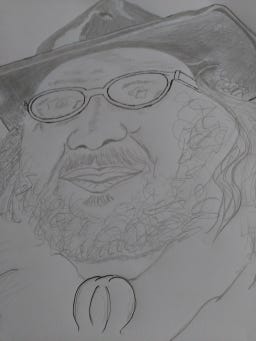"Hallo Goldie, an Interview with Douglas McCleneghan" + "Tipsheet on Following vs Subscribing" + "Get a whole year of articles for just one month's cost ($5)."
T.C.A. #14.
Eds N.B.
Douglas’ deeply thoughtful answers fascinate me. I trust that readers will experience the same. He describes himself as a retired Teacher, I disagree, for every paragraph I read tells me he Still is an exemplary Educator.
Hi Douglas, many thanks for agreeing to this interview. It’s a great pleasure to have you here ! Let’s dive straight in….
Q1…



